Target Audience
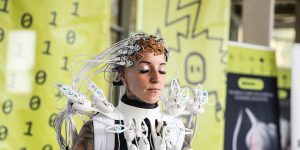
The Pangolin Scales
Thomas Faseth (AT), Harald Pretl (AT), Christoph Guger (AT), Anouk Wipprecht (NL)
The Pangolin Scales demonstriert die weltweit erste 1.024-Kanal Gehirn-Computer Schnittstelle (engl.: Brain-Computer Interface; kurz: BCI), welche Informationen des menschlichen Gehirns mit einer bisher nicht existenten Auflösung extrahiert, um damit ein interaktives, modisches Kleid zu steuern.
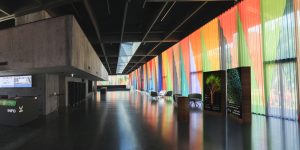
Treeversity
Johann Höller (AT), Thomas Lorenz (AT), Florian Gruber (AT), Ursula Niederländer (AT), Tanja Illetits-Motta (AT), Raphael Blasi (AT), Andreas Rösch (IT), Stefan Küll (AT)
Treeversity focuses on the relation between Big Data and data visualization to convey complex information at a glance. A mirror of the university’s inner workings, diligently recording success, failure and evolution. A portrait of its life in the form of a tree. Courses, grades and exams become branches, creating many different trees. Fully grown or nascent, withering or growing erratically. Treeversity shows the university as a forest, providing a tool to analyze its mechanisms at the same time.

Exposed Building
Michael Roland (AT), Michael Mayr (AT), Robert Holzinger (AT), Markus Vogl (AT)
Durch Öffnen eines Wandpanels und einen Hack der dahinter liegenden, vernetzten Gebäudeelektronik wird Zugriff auf das elektronische Schließsystem des Science Park 2 erlangt. Das Gebäude verwandelt sich mit seinen in den Türschlössern verbauten Summern in ein Orchester und erklingt wie ein riesiges, begehbares Instrument. Die Installation soll auf eine spielerische Art und Weise dazu anregen, sich mit der Verletzlichkeit moderner Technik und den damit erwachsenden Risiken für unsere Gesellschaft auseinanderzusetzen.
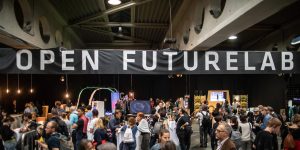
Open Futurelab Exhibition
Die Ausstellung Open Futurelab Exhibition zeigt die aktuellen Forschungen und Projekte des Ars Electronica Futurelab – dem Forschungs- und Entwicklungsmotor der Ars Electronica.
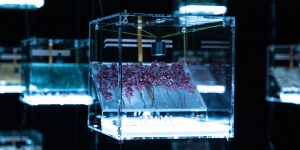
The Transparency of Randomness
Mathias Gartner (AT), Vera Tolazzi (AT)
The Transparency of Randomness' ist eine interaktive Rauminstallation, die Einblick in die Welt des Zufalls gibt. In einem transparenten Würfelsystem werden kontinuierlich Zufallszahlen generiert, die als Basis für Echtzeitberechnungen sowie Visualisierungen dienen. Dieser Prozess wird durch die Verwendung verschiedenster Naturmaterialen und deren Komplexität beeinflusst.
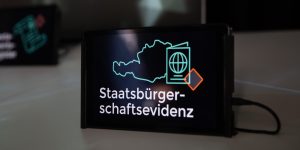
Digital Government in a Box
LIT Law Lab, Johannes Kepler University (AT)
Vom „gläsernen Bürger“ und „Social Scoring“, über KI-gestützte Wahrheitsfindung im Gerichtssaal, bis zum maschinell erstellten Bescheid: Die Digitalisierung der Verwaltung und der Gerichtsbarkeit kennt viele Facetten. Sie bedarf nicht nur einer Betrachtung des technisch Möglichen, sondern auch des rechtlich Erlaubten und rechtspolitisch Gewollten. Vor diesem Hintergrund widmet sich das LIT Law Lab mit zwei Installationen den (grund- und datenschutz-) rechtlichen Rahmenbedingungen, Problemen einer sowie Lösungsvorschlägen für eine digitalisierten Vollziehung.

KI-Wahrheitsmaschine
LIT Law Lab, Johannes Kepler Universität (AT)
Vom „gläsernen Bürger“ und „Social Scoring“, über KI-gestützte Wahrheitsfindung im Gerichtssaal, bis zum maschinell erstellten Bescheid: Die Digitalisierung der Verwaltung und der Gerichtsbarkeit kennt viele Facetten. Sie bedarf nicht nur einer Betrachtung des technisch Möglichen, sondern auch des rechtlich Erlaubten und rechtspolitisch Gewollten. Vor diesem Hintergrund widmet sich das LIT Law Lab mit zwei Installationen den (grund- und datenschutz-) rechtlichen Rahmenbedingungen, Problemen einer sowie Lösungsvorschlägen für eine digitalisierten Vollziehung.
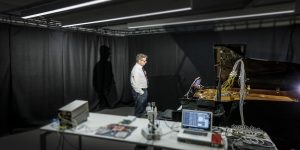
Biocomputer Rhythms
Interdisciplinary Centre for Computer Music Research (ICCMR), University of Plymouth (UK), Eduardo Reck Miranda (BR/UK)
Biocomputer Rhythms is a piece for prepared piano and percussion. It is a musical duet between a pianist and an intelligent interactive biocomputer. The biocomputer listens to the piano and produces musical responses during the performance. The responses are played on percussion instruments and on the piano by the pianist. The piano is prepared with electromagnetic actuators positioned inside the instrument to vibrate its strings. Electromagnetic actuators are also used to vibrate percussion instruments.
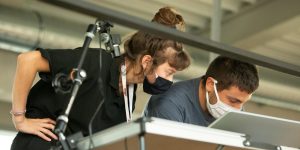
Performance Workshop: Enacting Innovation
Judith Igelsböck (AT), Friedrich Kirschner (DE), Sarah Buser (CH), Mónica Rikić (ES), Leoni Voegelin (CH), Tomás Montes Massa (CL), Laura Zoelzer (DE)
Die partizipative Inszenierung "Enacting Innovation" setzt sich mit dem sozio-materiellen Gefüge auseinander, das gegenwärtige Innovationspraktiken umgibt.
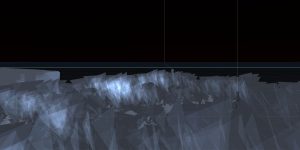
Random Rhetoric
MADE Group (GR)
“Random Rhetoric“ refers to computerized practices in politics, which are carried out through computers under the norm that political ideas operate as an outcome of mechanized processes and statistics, aiming at the absolute persuasion, the seduction of the audience, allured from the representation of a machine mimicking a human being.
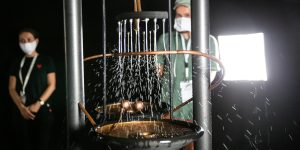
Dancing Water - sichtbare elektrostatische Energie
Leon Kainz (AT)
Diese Installation basiert auf einem einfachen physikalischen Prinzip, das mittels Wasser elektrostatische Aufladungen erzeugt. Die geladenen Wassertropfen wirbeln in dynamischen Bahnen um Kupferstangen herum und reagieren auf nahe befindliche Körper. Die gesammelte Ladung kann eine Glühbirne zum Leuchten bringen und zentimeterlange Blitze erzeugen.
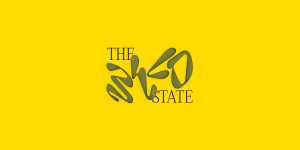
The Wild State
Campus
THE WILD STATE is the title of this year’s Kunstuniversität Campus activities at Hauptplatz Linz during Ars Electronica Festival 2020 from 9. – 13. September 2020. Existing since 2002, the intention of the Campus format is to invite outstanding international universities working in the academic fields of media arts and design. This year with an exhibition with contributions by various partner universities, as well as the departments Interface Cultures, Visual Communication, Fashion&Technology, Art Education, and Design: Tech.Tex. Special events comprise façade projection “Interfacing Hauptplatz”, the Internet flea market “Yami-ichi”, discursive format “Agora Digitalis” and the top notch nightline “Sound Campus”.

JKU LIT @ Ars Electronica
Digitale Revolution, demographischer Wandel, Klimakrise – die komplexen Konfliktfelder unserer Zeit bedürfen einer akademischen Landschaft voller Grenzüberschreitungen. Das Manifest „Innovation durch Universitas“ ist ein Aufruf für eine neue, transdisziplinäre Universitätskultur. Es bildet den Auftakt einer Allianz für kreative Innovation zwischen der Johannes Kepler Universität Linz und der Universität für angewandte Kunst Wien.
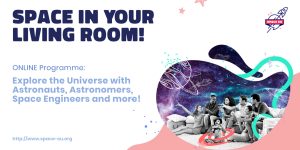
The Step into Space Garden
Leiden University (NL)
The Step into Space Garden is a journey of discovery through the story of space and your part in it. It presents online and in person events bring together space sciences and arts, through exhibitions and participatory activities with a focus on projects by and for youth.
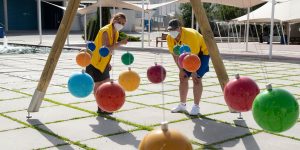
Pendulum Garden
Parque de las Ciencias (ES)
The Pendulum consists of 17 pendulums of different lengths and colors which represents the 17 Sustainable Development Goals. It aims to make society aware of the importance of achieving them by 2030. In this way, science and art come together to spread the importance of acting globally to achieve equality among people, protect the planet and ensure prosperity as part of the new sustainable development agenda.
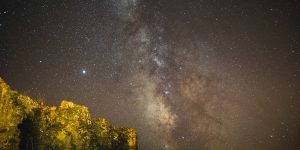
The Night Sky: Unveiling What Only the Dark Reveals
Open Science Hub - Portugal, Municipality of Figueira de Castelo Rodrigo (PT)
Open Science Hub - Portugal (OSHub-PT; Plataforma de Ciência Aberta) is a social innovation project that brings together science, technology and innovation with the daily life of local and regional communities, supporting schools and societal actors in tackling local relevant challenges. It is a project of the Municipality of Figueira de Castelo Rodrigo, in collaboration with Leiden University.
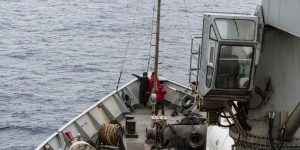
Achaeoscillator_Towards incorporeal forms of sensing listening and gaze
Terra Australis Ignota Research Group (CL) with Santiago Museum of Contemporary Art (MAC)
Achæoscillator displays the drastic weather conditions of the southernmost island in the world on a virtualized representation of the end/beginning of the Americas. A one-person experience, where the research presents traces and connections between the ancestors of the Yagán community, the Kawesqar and Selk’nam and the Antarctic, Scotia and South America continental plates, offering an inestimable and uncontrollable source of Gaia's power.
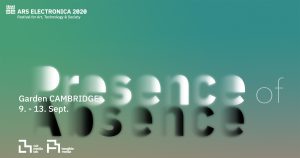
Presence of Absence
Tangible Media Group | MIT Media Lab (US)
The Cambridge Garden by Tangible Media Group for Ars Electronica Festival 2020, we will be featuring selected projects that materialize the Presence of Absence. Our garden introduces the latest in Tangible Telepresence research to engage people who collaborate across time and space with synchronized tangibles. We also feature a variety of dynamic computational materials we call Radical Atoms that foster a new form of human-material interactions.
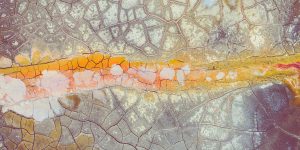
Speculating on the Future
Centre for Fine Arts (BOZAR) (BE)
BOZAR explores the role of scientific and technological research as an engine for creativity. The meeting of science, technology and the arts is the favoured basis for finding innovative responses to the social, ecological, and economic challenges that Europe will be facing in the near future. BOZAR joins the Ars Electronica Festival with its own interpretation of the Kepler’s garden, through the curation of 3 online events under umbrella name "Speculating on the future".
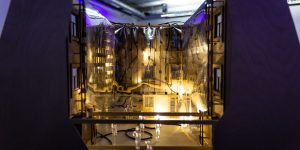
Art and Nanotechnology
gnration (PT) and INL – International Iberian Nanotechnology Institute (PT / EU)
gnration presents a virtual tour of The Invention of Sense by Marcel Weber. The exhibition explores extrasensory perception and a new sensuality. In the featured works, as well as in their presentation, Sensing, Discovering and Exciting are discussed, stimulated and elevated. The exhibition takes the premise further by extending the established restrictions of gallery space and turning the room itself into a medium and a stimulating, visceral experience.


